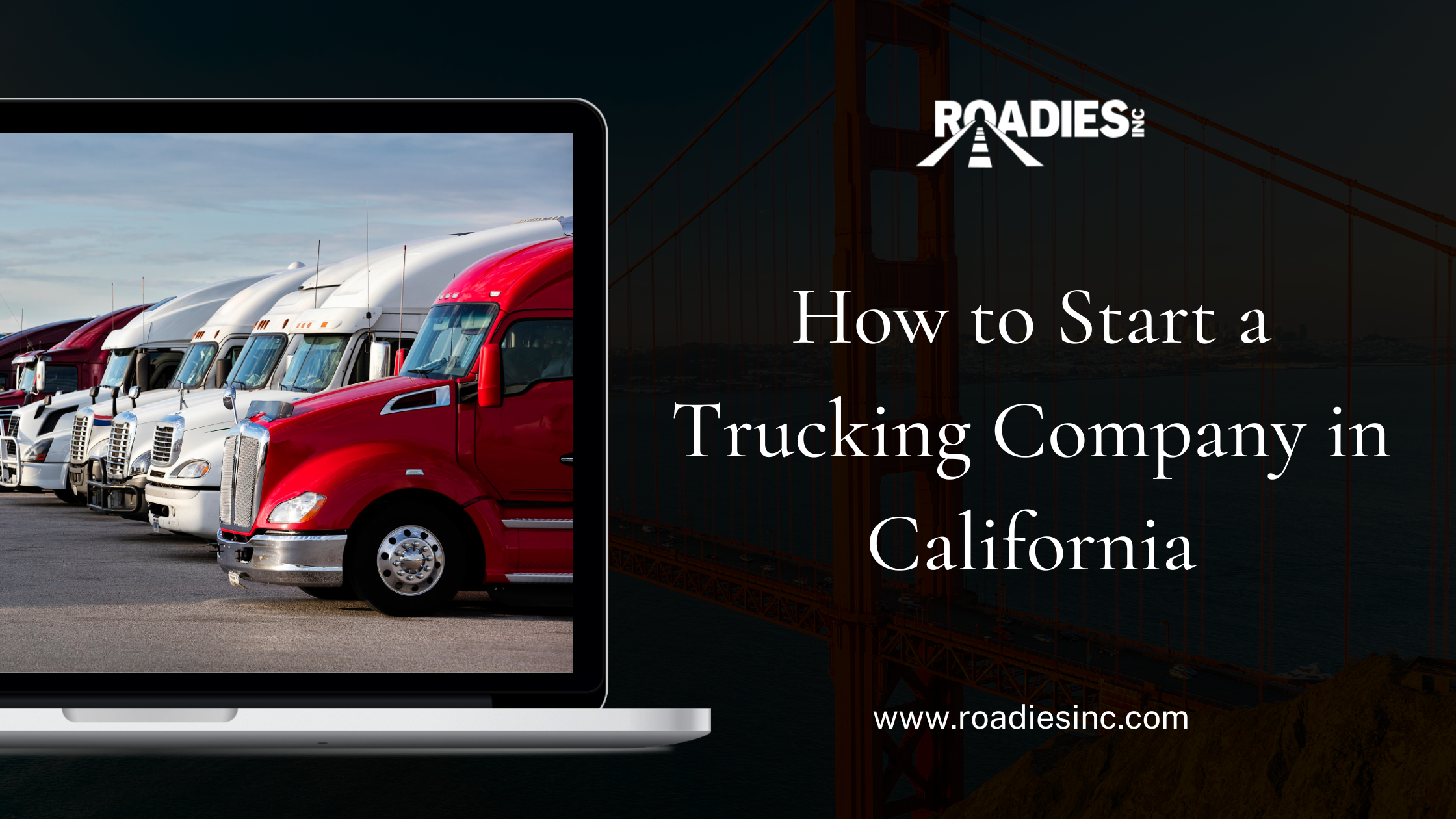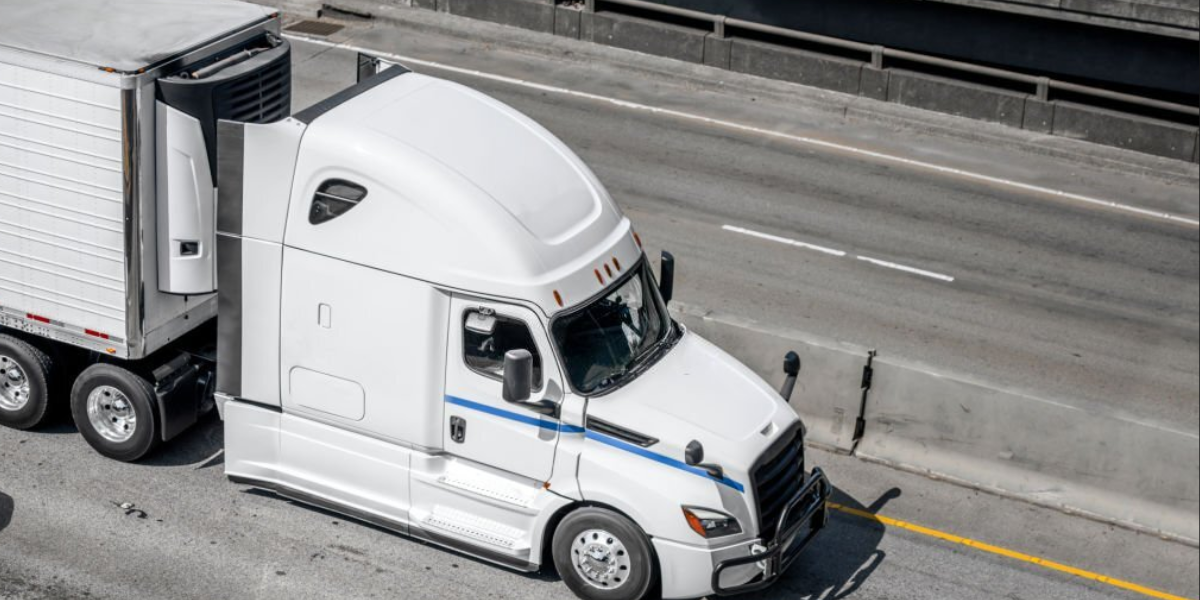If you’re a truck driver and are ready to take the plunge to become an independent owner-operator, we’ve got you covered. We’ve put together this checklist of items you’ll need to start your own trucking company in California and be your own boss. We highly advise you to complete your research to find out if obtaining an MC Authority is the appropriate decision for you before we start. Not all owner-operators require authority, as you are undoubtedly already aware.
How to Start a Trucking Company in California?
The methods listed below explain how to launch your own trucking company and the associated expenses. We’ll also touch on the perks of leasing with a virtual trucking carrier instead of obtaining your own authority.
1. Build a Trucking Business Plan
In the trucking industry in particular, failing to prepare is preparing to fail. Outlining your strategy and directing the expansion of your organization require a strong business plan. See our guide on writing a trucking business plan if you need assistance. Alternatively, you may streamline the process by becoming an independent owner-operator under Rodiesinc’ authority, which will let you be your own boss without having to deal with the headache of creating a comprehensive strategy for investors and lenders.
2. Registration of State Businesses ($35–$500)
Before beginning employment, even independent owner-operators must legally create their trucking business. This entails satisfying state regulations, registering your company, and acquiring a federal tax ID. Where you register depends on your location and business structure; LLC filing fees can range from $35 to $500, depending on the state.
3.Obtain Your CDL (Licenses) for between $0 and $5,000
Operating a combination tractor-trailer requires a Class A Commercial Driver’s License (CDL). Depending on whether you enroll in a truck driving school or use employer-sponsored training programs, which may include a one- to two-year work commitment, costs can range from free to $5,000.
- For your cargo, be sure to obtain the appropriate CDL class and any required endorsements, including:
- Doubles or triples: for more than one trailer
- Tanker: for large gasses or liquids
- For hazardous materials, use Hazmat.
- Passenger: for passenger cars or buses
State licensing authorities and the FMCSA provide free preparation guides and manuals.
4. USDOT and Motor Carrier (MC) Authority Number – $300
A USDOT Number identifies your company for safety monitoring and is required for all commercial vehicles hauling cargo across state lines. Obtaining it is free.
An MC Authority Number is required for interstate trucking and comes with a $300 application fee, with additional costs for insurance and other requirements.
If you lease on with a carrier, you don’t need your own DOT or MC numbers, Rodiesinc handles all the paperwork. Simply complete a short application, and their team will guide you through the setup.
5. Unified Carrier Registration (UCR) costs between $59 and $56,977
Businesses and people engaging in interstate trade must register and pay a government charge known as Unified Carrier Registration (UCR). The price depends on the size of the fleet and ranges from $59 to $56,977. UCR may be insured by another carrier if you operate under their jurisdiction.
6. Tag for the International Registration Plan (IRP): $1,500–$2,000
The procedure for obtaining allocated license plates for commercial vehicles and trailer equipment is known as the International Registration Plan (IRP).
The state in which your business is situated issues the IRP. If leased owner-operators operate under the license plates of another carrier, they could not be subject to IRP.
7. International Fuel Tax Agreement Decal (IFTA): $0
A fuel license known as the International Fuel Tax Agreement (IFTA) enables businesses to submit quarterly fuel consumption tax reports according to the state in which their headquarters are located. A decal included in the IFTA needs to be placed on every truck and kept up to date for every year.
8. $20 to $40 for the BOC-3 Form.
An essential component of the MC authorization application procedure is Form BOC-3. Your business can appoint a process agent in a different state by using BOC-3. The process agent will accept any legal paperwork sent to you in Michigan, for instance, if your business is based in California but is being sued in Michigan.
9.Standard Carrier Alpha Code (SCAC) – $95
Companies that typically transport the following types of goods are identified by the Standard Carrier Alpha Code (SCAC):
- Military
- Government
- International
- Intermodal (rail and ship containers)
- Port cargo
- Railyard cargo
- Chemicals/hazardous materials
You must register and pay a $95 charge on the National Motor Freight Traffic Association’s (NMFTA) website if you want to carry any of the aforementioned items.
10. $3,000 to $12,000 for insurance
Another prerequisite for a number of registrations, including the MC authority application, is insurance. Insurance is necessary for your trucking company to cover the expense of your goods and equipment. A comprehensive list of insurance needs is kept up to date by the FMCSA. Among the necessary insurance types are:
- Auto insurance
- Physical damage to cars
- Cargo
- Liability in general
Conclusion:
To establish your own trucking business, you must first create a comprehensive trucking business plan and complete the proper paperwork to register your company and receive a USDOT and Motor Carrier Authority Number, among other criteria. Additionally, you will have to pay the Federal Heavy Highway Vehicle Use Tax (HVUT) if your vehicle weighs 55,000 pounds or more. You must submit IRS form 2290 and pay $550 annually for each car in order to maintain HVUT compliance. At Rodies Inc., a trusted trucking company in Bakersfield CA, we guide new and experienced trucking entrepreneurs through every step of the process—from registration and compliance to ongoing fleet management solutions—ensuring your business stays on the road legally and profitably.
FAQs
Q1: Does launching a trucking business in Bakersfield, California require a business plan?
Indeed. Outlining your strategy, overseeing operations, and directing expansion all require a company plan. It assists you in maintaining organization and becoming ready for costs, licenses, and legal obligations.
Q2: What is the price of registering a trucking business in California?
The cost of state registration varies according to the location and form of your firm. In addition to extra registrations like MC authorization or DOT numbers, LLC filing expenses usually vary from $35 to $500.
Q3: What type of CDL do I need to operate a truck?
A Class A CDL is required for combination tractor-trailers. Additional endorsements may be needed for specific cargo types, including doubles/triples, tanker, Hazmat, or passenger transport.
Q4: Do I need a USDOT number and what is it?
Your trucking firm is identified for safety monitoring by a USDOT number. It is free and necessary for any commercial vehicles transporting goods over state boundaries.
Q5: What is an MC Authority Number, and how much does it cost?
An MC Authority Number allows your company to operate interstate and costs around $300, with additional fees for insurance. Some carriers, like Roadies Truck Company, handle this process for leased drivers.



